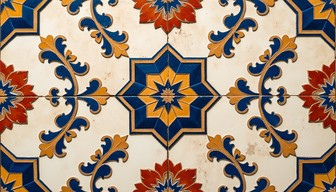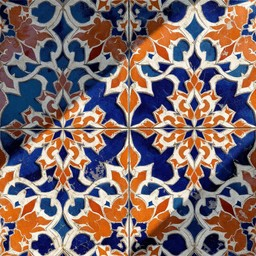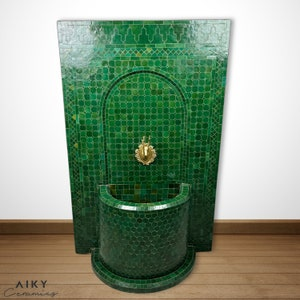- Published on
Zellige The Intricate Art of Moroccan Mosaic Tilework
- Authors

- Name
- Adil ABBADI
Introduction
Zellige, a term derived from the Arabic word "zellij," meaning "tile," is an exquisite form of Moroccan mosaic tilework that has been a cornerstone of the country's rich cultural heritage for centuries. This ancient art form is a testament to the country's Islamic architectural influences, and its significance extends beyond aesthetics, holding deep cultural and spiritual value.

- Historical Context
- Traditional Significance
- Contemporary Significance
- Preservation and Promotion
- Conclusion
- Cultural Call-to-Action
Historical Context
Zellige originated in the 10th century, during the reign of the Zirid dynasty, Moroccan artisans began creating intricate mosaics using glazed tiles. The art form flourished during the Almoravid and Almohad dynasties, with the construction of grand mosques, madrasas, and palaces. Zellige became an integral part of Moroccan Islamic architecture, reflecting the country's cultural identity.
Traditional Significance
In Moroccan culture, Zellige is not merely a decorative element; it holds spiritual value, symbolizing the infinite and the divine. The intricate patterns and geometric shapes are believed to represent the harmony and unity of the universe. The art form is also deeply rooted in Sufism, with the repetitive patterns and colors evoking a sense of spiritual journey towards enlightenment.

Contemporary Significance
Today, Zellige continues to inspire Moroccan artisans, who blend traditional techniques with modern designs and materials. The art has also gained international recognition, influencing contemporary architecture and design. Moroccan government initiatives have been established to preserve and promote Zellige, ensuring its cultural significance and artistic value endure for generations to come.
Preservation and Promotion
Efforts to preserve and promote Zellige include the establishment of artisanal cooperatives, training programs, and exhibitions. The Moroccan Ministry of Culture has also launched initiatives to document and protect the country's Zellige masterpieces, ensuring the art form's cultural significance and artistic value are safeguarded for future generations.

Conclusion
Zellige is a testament to Morocco's rich cultural identity, reflecting the country's Islamic architectural influences and spiritual values. As a symbol of the infinite and the divine, Zellige continues to inspire and mesmerize, its intricate beauty and significance transcending time and cultures.
Cultural Call-to-Action
As you explore the wonders of Moroccan culture, take a moment to appreciate the intricate beauty of Zellige. Visit Morocco's grand mosques, madrasas, and palaces, and marvel at the exquisite tilework. Support local artisans and cooperatives, and help preserve this ancient art form for generations to come.
